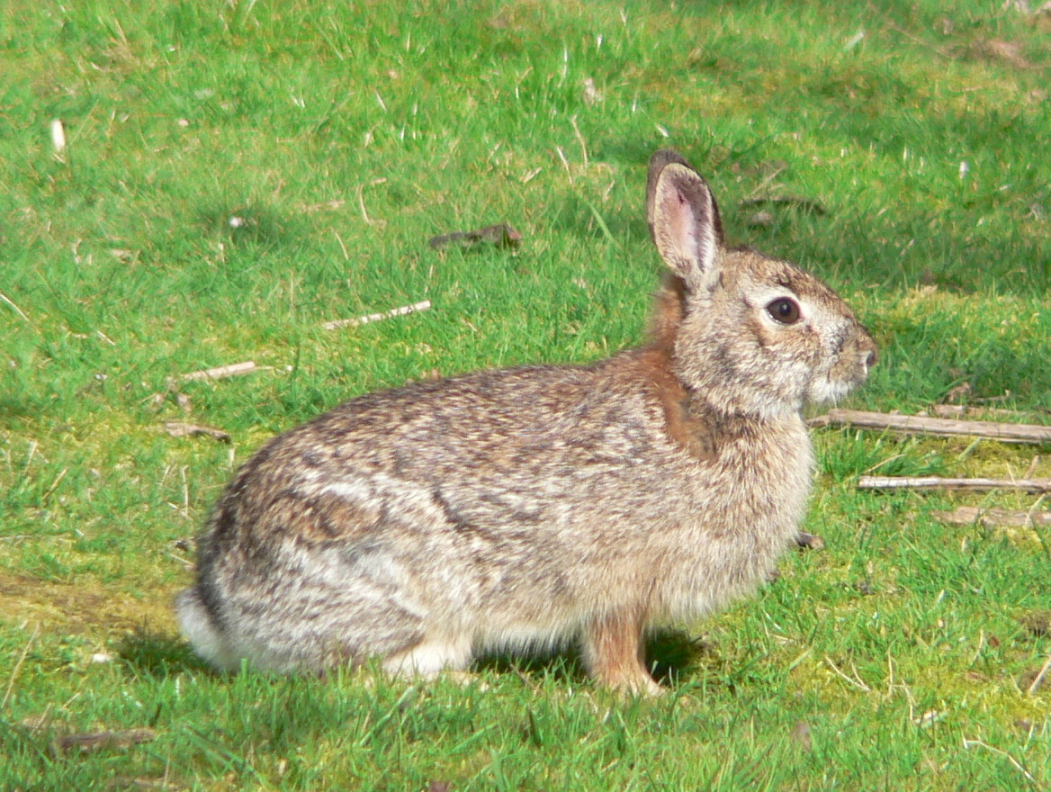What Do Brush Rabbits Eat?
Brush rabbits, also known as western brush rabbits, are small mammals native to the western United States. They are herbivores and have a diverse diet consisting mainly of plant material. In this article, we will explore the various foods that make up the diet of brush rabbits.

Herbs and Grasses
Herbs and grasses are a significant part of a brush rabbit’s diet. They consume a variety of green plants found in their habitat, including clover, dandelion, plantain, and meadow grasses. The rabbits rely on these plants for their nutritional needs and also use them as a source of hydration.
Leaves and Twigs
Brush rabbits also feed on leaves and twigs of different shrubs and trees. They munch on the foliage of blackberry bushes, willow trees, and manzanita plants. The leaves and twigs provide essential nutrients and fiber to the rabbits, aiding in their digestion.
Bark and Roots
Occasionally, brush rabbits will gnaw on the bark of trees and chew on plant roots. While this behavior may seem unusual, it helps keep their teeth worn down and in good condition. The bark and roots also provide some additional nutrients to their diet.
Wildflowers and Seeds
Wildflowers and seeds are another food source for brush rabbits. They consume a variety of native wildflowers in their habitat, such as lupine, aster, and sunflower. Additionally, they eat seeds from grasses and other plants, which contribute to their nutritional intake.
The Importance of a Balanced Diet for Brush Rabbits
A balanced diet is crucial for the overall health and well-being of brush rabbits. Their diet consists of a range of plant materials, ensuring they receive the necessary nutrients, vitamins, and minerals. The variety of foods they consume helps prevent dietary deficiencies and supports their energy requirements.
A balanced diet helps brush rabbits maintain a healthy weight, proper digestion, and strong teeth.
The consumption of herbs and grasses provides brush rabbits with essential vitamins like vitamin C and vitamin K. These vitamins play a vital role in maintaining their immune system and blood clotting. Additionally, the fibrous content in leaves, twigs, and grasses aids in digestion and prevents gastrointestinal issues.
By including bark and roots in their diet, brush rabbits ensure they get enough fiber and roughage. The gnawing action required to eat bark also helps keep their teeth from overgrowing, as their teeth continuously grow throughout their lives. The wildflowers and seeds they consume provide a variety of nutrients, including proteins, carbohydrates, and fats.
Frequently Asked Questions (FAQs)
1. Can brush rabbits eat fruits and vegetables?
No, brush rabbits primarily consume plant materials found in their natural habitat, such as herbs, grasses, leaves, and twigs. They do not typically eat fruits and vegetables.
2. Are there any plants that brush rabbits should avoid?
While brush rabbits generally know which plants are safe for consumption, there are a few plants that can be toxic to them. These include hemlock, foxglove, and nightshade. It’s important to ensure that their habitat does not contain any harmful plants.
3. Can brush rabbits survive on a diet of just grass?
While grass is a significant part of their diet, brush rabbits require a variety of plant materials to meet all their nutritional needs. A diet consisting solely of grass would not provide them with the necessary vitamins, minerals, and proteins.
4. How often do brush rabbits need to eat?
Brush rabbits have a high metabolic rate, and they typically feed multiple times throughout the day to meet their energy requirements. They rely on a constant supply of plant materials to sustain their energy levels.
Related Articles…
Copyright Notice:
Images displayed on this website are not our property, but are procured from the internet. If you hold copyrights to any image and wish for its removal, please get in touch with us.